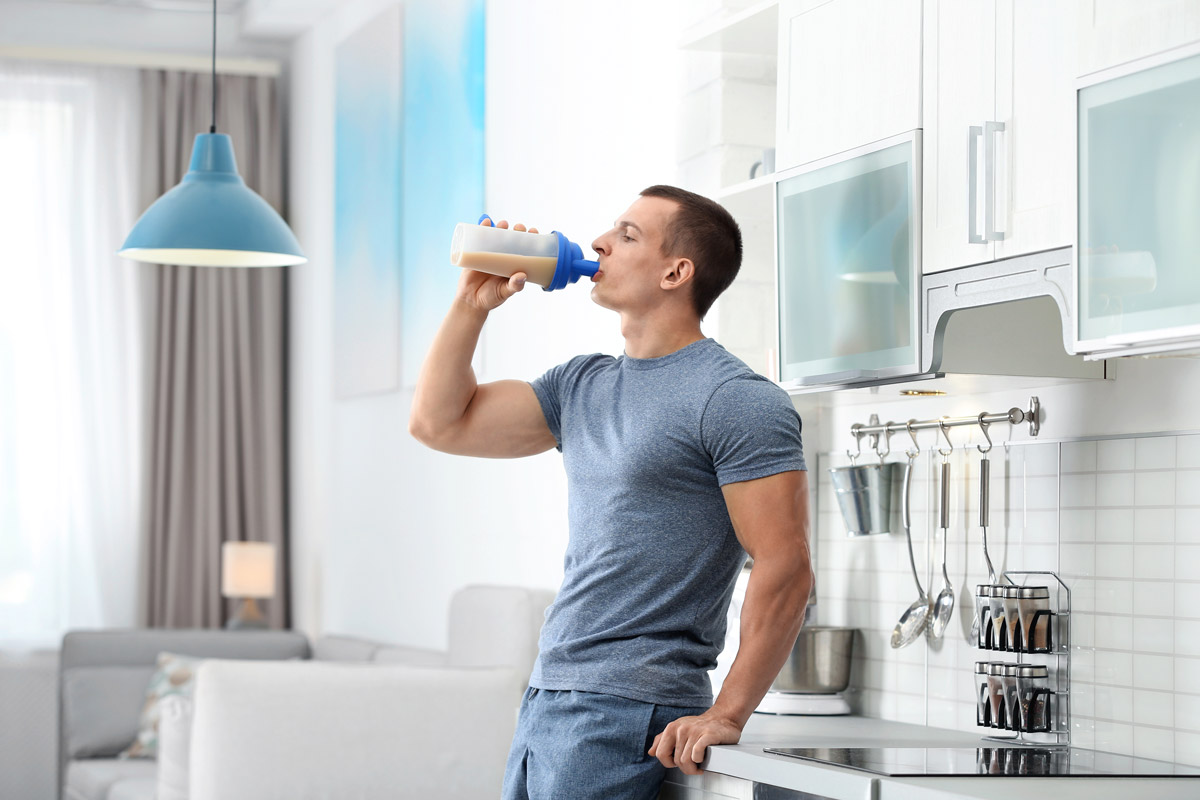Deciding to have a protein shake before or after workout has long been debated among coaches and athletes. The age-old belief centers around a “golden hour” post-exercise, suggesting it’s the prime time for your muscles to soak up all the protein goodness. But how much truth is there to this? A recent study offers clarity, revealing that the timing of your protein shake, whether before or after exercise, might not be as crucial as once believed.
Did you miss our last segment of Critical Reload’s “Feast on Facts” series? CLICK HERE
What Exactly is the “Golden Hour”?
Often dubbed the magic period post-exercise, the “golden hour” is when many believe our bodies are most eager to absorb protein, maximizing muscle growth. The common advice? Grab that protein shake within an hour of finishing your workout.
What Did the Study Find?
Some smart scientists in the study wanted to see if this “golden hour” was real. They asked a group of guys who work out regularly to drink a protein shake before or after workout.
Here’s what they found out:
- The timing of the protein shake before or after workout didn’t significantly alter the results. The participants’ muscles developed and strengthened similarly.
- This suggests that the “golden hour” might not be as rigid as previously assumed.
So, What’s the Best Approach?
- Timing Isn’t Everything: Did you miss your post-workout shake? No worries! Whether you have your protein shake before or after workout, it seems both timings are effective.
- Quality First: While timing is a factor, the quality of your protein shake is paramount. Ensure it’s packed with the right nutrients!
- Tune Into Your Body: Everyone’s unique. Some might prefer their shake pre-workout, while others swear by the post-workout boost.
- The Bigger Picture: A balanced diet, regular exercise, adequate sleep, and mental well-being are all parts of the fitness journey.

Critical Reload and the Protein Timing Debate
Though the study hints at a more lenient protein intake window around workouts, it’s crucial to understand that this doesn’t challenge Critical Reload’s emphasis on refueling post-training. The essence of ‘Critical Reload’ is about nourishing the body after rigorous exercise, a concept that remains steadfast, irrespective of the exact protein shake before or after workout timing.
In Conclusion
The world of fitness is filled with advice and guidelines. However, it’s vital to find what resonates with you. And now, with this newfound knowledge, you can confidently decide whether to have your protein shake before or after workout!
Frequently Asked Protein Shake Before or After Workout Questions
- What’s the anabolic window?
It’s the believed timeframe post-exercise when the body is most ready to absorb nutrients, especially protein. - How long does this window last?
Traditionally, it’s around 45 minutes to 1 hour post-exercise. - What’s the study’s take on protein timing?
The research indicates that having a protein shake before or after workout yields similar muscle benefits. - So, when’s the best time for my shake before or after workout?
The study suggests flexibility, with the protein intake window possibly extending several hours post-training, especially considering your last meal.
Coach’s Talking Points for Athletes
- Flexible in Protein Timing: The exact moment for that protein shake, whether before or after workout, might be more flexible than we once believed.
- Listen to Your Body: While research offers insights, listening to individual body responses is essential.
- Quality Over Quickness: Prioritize the quality of your protein source.
- Stay Updated: Science is always evolving. Stay updated with the latest research to optimize your training and nutrition.
- Holistic Approach: Remember, nutrition is just one piece of the puzzle. Recovery, sleep, and consistent training are equally crucial.
Reference
Schoenfeld BJ, Aragon A, Wilborn C, Urbina SL, Hayward SE, Krieger J. Pre- versus post-exercise protein intake has similar effects on muscular adaptations. PeerJ. 2017 Jan 3;5:e2825. doi: 10.7717/peerj.2825. Erratum in: PeerJ. 2017 Aug 1;5: PMID: 28070459; PMCID: PMC5214805.
